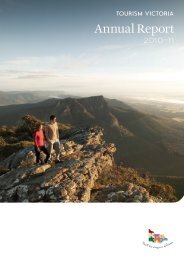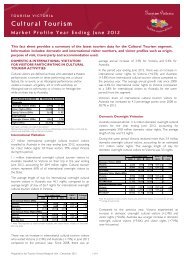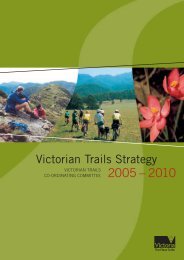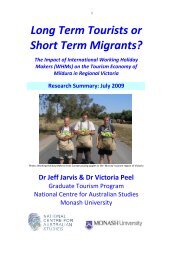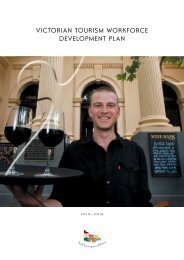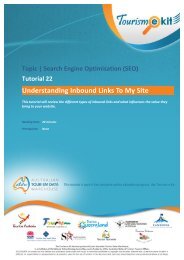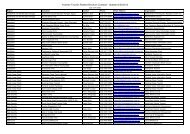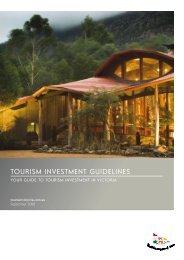Crisis Communications Handbook for Regional ... - Tourism Victoria
Crisis Communications Handbook for Regional ... - Tourism Victoria
Crisis Communications Handbook for Regional ... - Tourism Victoria
Create successful ePaper yourself
Turn your PDF publications into a flip-book with our unique Google optimized e-Paper software.
Media Interview Guidelines<br />
1. Speak concisely and in short sentences<br />
2. Formulate a handful of central key messages - write them down and stick to them<br />
3. Remember who your real audience is – viewers, listeners, readers<br />
4. Be aware of latest in<strong>for</strong>mation<br />
5. Be aware of how the crisis or incident is being reported and of any specific concerns raised<br />
6. Don’t do media interviews off-the-cuff – think first and have a clear objective<br />
7. If appropriate, ask whether the journalist has spoken to anyone else<br />
8. Anticipate potential questions and prepare thoroughly<br />
9. Don’t be defensive<br />
10. Know the facts – never attempt to bluff<br />
11. Never lie – you will be found out<br />
12. Don’t repeat provocative phrases eg: “No, we’re not embarrassed by this situation …”<br />
13. Avoid debates<br />
14. Be mindful of media deadlines<br />
15. Never assume the cameras or tape recorders are off<br />
16. Make written background in<strong>for</strong>mation available if appropriate<br />
17. Use everyday language – not technical jargon<br />
18. Minimise surrounding distractions<br />
19. Dress appropriately<br />
20. Ensure an appropriate backdrop <strong>for</strong> TV interviews.<br />
CRISIS COMMUNICATIONS HANDBOOK FOR REGIONAL AND LOCAL TOURISM 22




